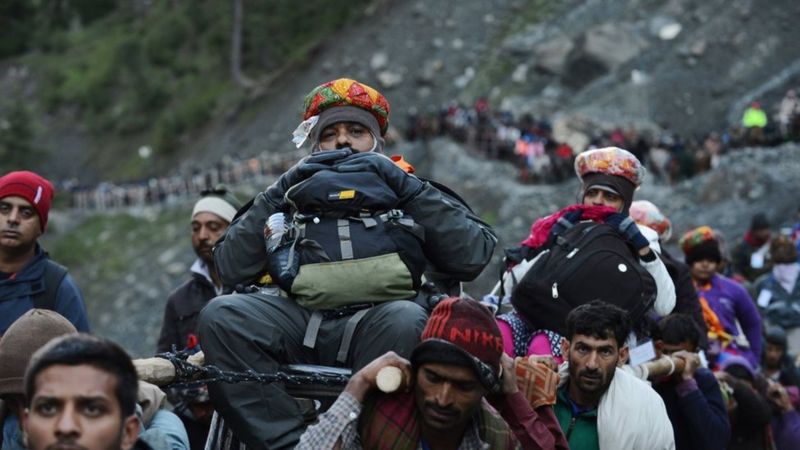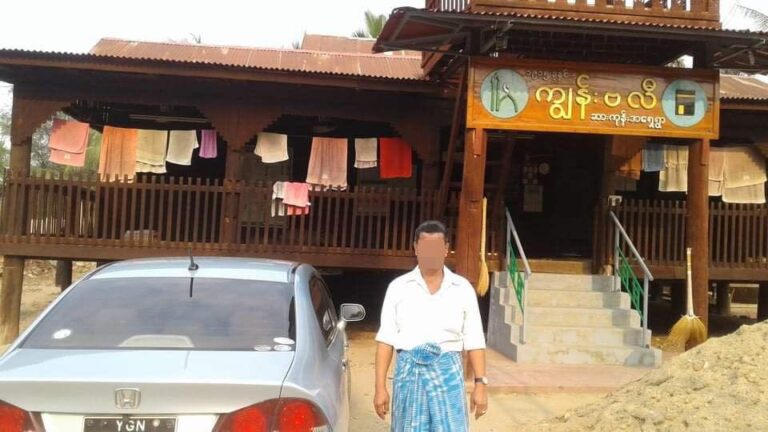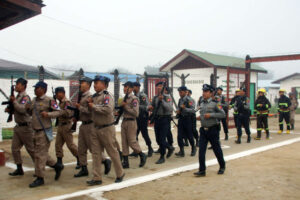Hotels are empty and roads are deserted at the start of what should be the peak tourist season in Pakistan’s Kashmir valley, where stunning mountains and green valleys usually draw crowds. The fear of attacks from India has kept visitors away.
Tensions between the two nuclear-armed neighbors have skyrocketed after India accused Pakistan of supporting a shooting that killed 26 civilians on April 22 in the disputed region.
Indian Prime Minister Narendra Modi has given the military “full operational freedom” to respond, while Pakistan warned earlier this week that they have “credible intelligence” suggesting India is planning imminent strikes.
The Neelum Valley, a top tourist spot in Pakistan-administered Kashmir, usually comes alive in May as people escape the rising heat across the rest of the country.
“This season started terribly,” said Muhammad Awais, a 22-year-old photographer working at a popular picnic site.
Tourism is vital to the Neelum Valley, attracting over 300,000 visitors every year, according to local officials. Around 350 guesthouses provide jobs for thousands of families.
“Our income relies entirely on tourists. Without them, we’re in trouble,” Awais told AFP. “Things are moving very slowly, and it’s badly hurting our work.”
Recently, police and army troops set up checkpoints, blocking tourists from entering the valley and only letting local residents pass. Visitors were told to turn back to Muzaffarabad, the regional capital.
“It’s so disappointing that the government didn’t warn us earlier,” said Saleem Uddin Siddique, a retired accountant, who had traveled with his family from Islamabad. “Now our plans are completely ruined,” the 69-year-old added.
- Nipah virus spreading in India was discovered 30 years ago in Malaysia
- EDUCATION MINISTRY ALLOWS STATELESS, MIGRANT CHILDREN TO ENROL IN THAI SCHOOLS
- Confessions of an Israeli Female Recruit,”We lost ourselves before we won any war”
- Is Islam the cause of crime, violence and terrorism in the world?
- “Qur’an translations can never replace the Arabic recitation.”
‘We don’t want war’
Pakistan has denied any role in last month’s attack in Pahalgam, but tensions between the two sides have led to a series of retaliatory diplomatic actions.
For nine nights straight, Indian and Pakistani forces have reportedly exchanged gunfire along the heavily militarized Line of Control, which acts as the de-facto border.
On Saturday, Pakistan’s military announced it successfully tested a surface-to-surface missile with a range of 450 kilometers (280 miles) to ensure troop readiness.
Global leaders have urged both countries to settle their differences through dialogue.
India and Pakistan, who each claim Kashmir in full, have fought several wars over the territory since the end of British colonial rule in 1947.
Along India’s fortified border, farming families living by the Chenab River have been evacuating their homes, haunted by memories of the 1999 Kargil conflict between the two armies.
Tourism on the Indian side has also collapsed since the April attack that targeted Hindu visitors enjoying the meadows.
India had been heavily promoting Kashmir as a tourist destination, for both winter skiing and as a summer escape from the heat.
Meanwhile, the Pakistani-controlled Kashmir authorities have ordered religious schools to shut down and advised people to stock up on food supplies.
Despite the growing tensions, a few tourists still attempted to visit.
“We don’t believe the threat of war is serious,” said Mudasar Maqsood, a 39-year-old factory worker from Kasur, about 630 kilometers away. He and his friends were stopped from entering the valley.
“We shouldn’t let this disrupt our daily lives,” he said.
Raja Iftikhar Khan, president of a private tourism association, warned that things could get “extremely dire.”
“This crisis has been devastating for everyone connected to tourism,” he said. “We don’t want war — no reasonable businessperson ever does.”








